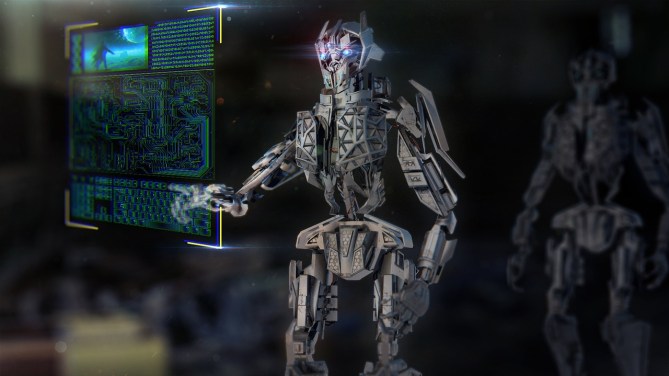In a recent conversation with my mother-in-law, she asked how artificial intelligence (AI), all the large language models (LLMs), and ChatGPT were affecting Access Innovations. She wanted to know if the impacts had been adverse and if Access had adapted and embraced the new technologies.
I struggled to find the right words. She’s savvy and adorable in her 85th year of life, but the jargon surrounding these technologies can get pretty complex.
As the person responsible for marketing, it is sometimes hard to find the right words to explain what Access Innovations does, especially in terms that are widely understood. “Semantic enrichment” and “taxonomy” can make even the most educated eyes glaze over if the person doesn’t already know what I am talking about. It’s like being on the other side of a wall.

I started thinking about LLMs like ChatGPT, Bard, and the host of others now available. I’m not including image or video systems, because we usually work with text. And then it dawned on me – we’ve been using the same techniques for over 30 years. Granted that we work on a smaller scale, and of course our projects are usually tight in their focus, targeting one or a small number of topical areas. But we apply the same techniques to what we do every day, and we’ve been doing this for three decades.
Folks, this isn’t news. The immense scale is the only new thing about it, in fact. LLMs require an immense amount of data to train, and where 30 years ago the computing power wasn’t readily available to most people or organizations, it can be had these days for a nominal investment, though the tech giants’ do tend to keep themselves fresh with more of the newest technologies and information scientists.
Indeed, human effort is still involved in even the most complex decision-support systems. The machine cannot yet do it all. This is usually the point where the sci-fi based fear and fascination kicks into high gear. It’s possible that the machine will do it all someday. I don’t expect to see a fully automatic, machine based, truly intelligent system in my lifetime. When will a “thinking” machine independently be able to create another, separate “thinking” machine, complete with ethics, morals, and other trappings of humanity?

We could talk about Skynet from the Terminator, HAL from A Space Odyssey, the Computer from Star Trek and plenty more – and those things are still science fiction (or fantasy, a semantic debate for another time).
There is a lot of hype about ChatGPT, Bard, and other LLMs. They have alarmed the world, prompted lawmaker debate, and sparked many discussions. The discussions and columns about ethical dilemmas, permissions, and rights are full of opinions of every kind that will eventually gel into consensus. Good topics arise even in the absence of LLMs and GPTs. The hype has fueled some good ideas, some bad feelings, and not a small amount of panic as pundits predict both which jobs will be replaced and when. No one has yet asked me. If they had, I would have said, “Relax.”
Remember that we’ve been using these techniques for over 30 years successfully, albeit on a relatively minor scale. We haven’t caused global disruption or violated anyone’s copyright. We do what we’ve been doing, tweaking and improving with developments in the technologies, because it works. It is correct to assume human effort is involved. In fact, it requires a special type of human for information science. Not everyone is cracked up for semantics.
I searched “what is the future of LLMs” on perplexity.ai. This statement jumped out at me: “One potential future for LLMs is the development of more specialized models for specific industries or domains – from a blog on pangeanic.com.
Hello? Is this thing on? That’s exactly what we do and have been doing for years! It’s possible someone missed us in the fog.
The sky is not falling. Human knowledge management workers will keep their jobs. It’s possible my teenage daughter will see the rise of the machines and fully automatic, machine based, truly intelligent systems. It could also be generations away. In the meantime, I will breathe normally, keep doing what I do – since it works – and leave the hand-wringing to someone else.
As a marketer, I have played around with ChatGPT and Bard, and I don’t see them taking over my job any time soon. They give me a boost when I have writer’s block, and I will never, ever send out something generated by an LLM or GPT without editing it. They just don’t have my inimitable style, after all.
Heather Kotula
VP, Marketing and Communications
Access Innovations, Inc.









